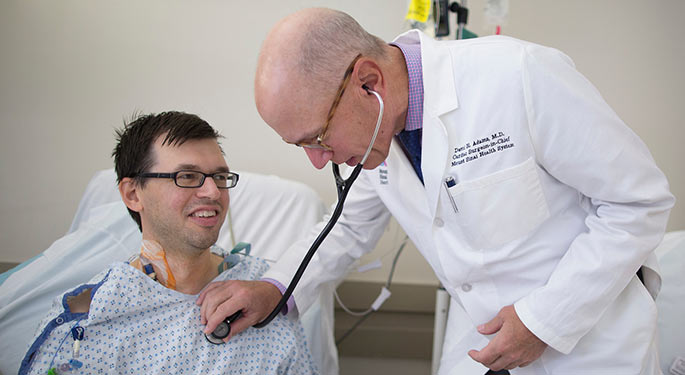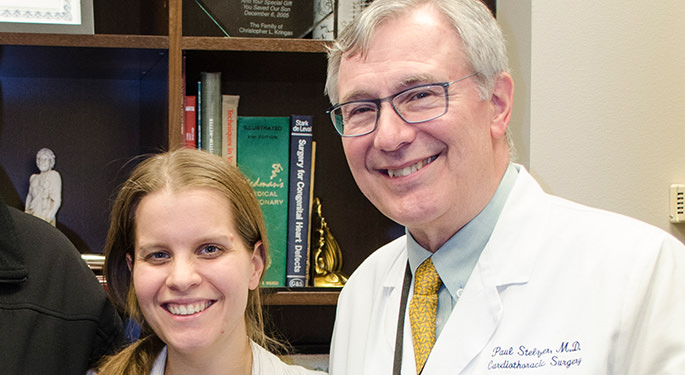Heart Valve Disease


A healthy heart circulates blood in a one-way loop, controlled by a system of four valves: the mitral, the aortic, the tricuspid, and the pulmonary. If these valves fail to open or close properly, the heart loses its ability to pump blood throughout the body, eventually starving organs of oxygen and nutrients.
Valves can be improperly formed, scarred, stretched, weakened, or thinned. Supportive structures may loosen or tear. Sometimes valves do not open or close correctly, which impedes blood flow, additionally if a valve does not fully close, blood can leak through the opening and go in the wrong direction, which is called regurgitation.
Heart valve disease has a number of possible causes, including degenerative diseases, birth defects, connective tissue diseases, trauma, and tumors. Other contributing factors are coronary artery disease, trouble with the aorta, pulmonary hypertension, and elevated pressure in the arteries supplying the lungs.
Symptoms
Many people with valvular heart disease have no symptoms at all. Others find that symptoms develop over time. If you experience one or more of the following symptoms should discuss them with a physician:
- Chest pain or pressure
- Coughing
- Dizziness
- Fainting
- Fatigue
- Palpitations, or unusual awareness of heartbeat
- Shortness of breath or difficulty breathing
- Swollen ankles or feet
- Wheezing
Diagnosis and Detection
To diagnose heart valve disease, Mount Sinai Fuster Heart Hospital physicians typically start with a physical examination, followed by diagnostic testing. We screen for the following:
- Heart murmur or other abnormal heart sounds
- Fluid in the lungs
- Enlarged heart size on examination of the chest
- Distended neck veins
- Swollen liver
We often use echocardiograms in the screening process. These tests can indicate not only the presence of valvular heart disease but also the extent of it. We can string a series of three-dimensional echocardiograms into a “movie” that aids not only in diagnosis but also in preparing for surgical repair. We perform more than 10,000 echocardiograms annually. Treatment for your valvular heart disease will depend on the type and severity.
Why Mount Sinai Fuster Heart Hospital
At Mount Sinai Fuster Heart Hospital, we are experts at treating heart valve disease. Our top cardiologists and cardiac surgeons have invented devices and pioneered techniques that are used worldwide. For instance, David H. Adams, MD, Samin K. Sharma, MD, and Annapoorna S. Kini, MD, performed the first U.S. implantation of a new device to treat aortic stenosis and Valentin Fuster, MD, showed that people with diabetes and several clogged heart arteries fare significantly better with bypass surgery than stents. We also have a strong background in the engineering and physics of cardiac imaging.